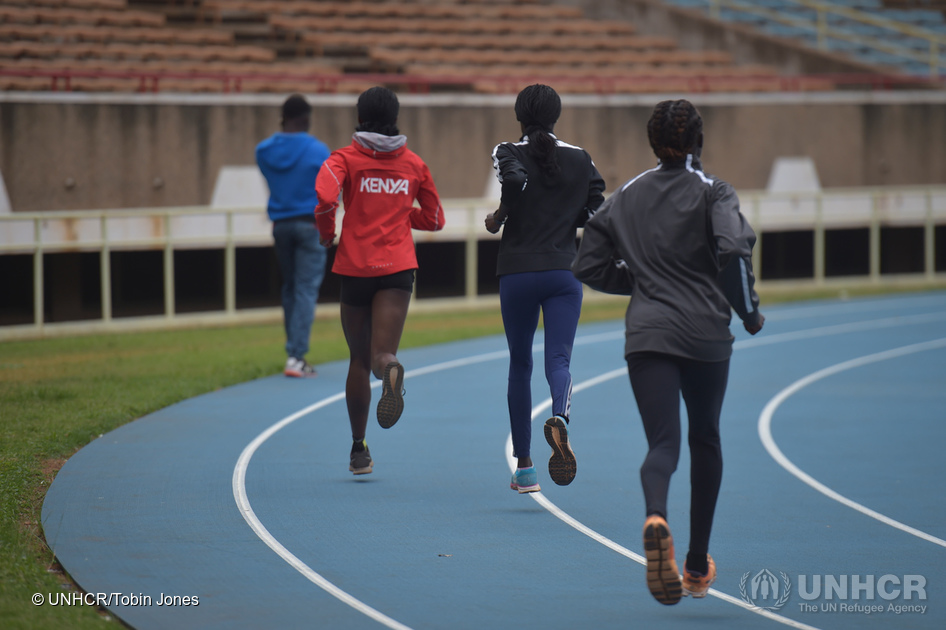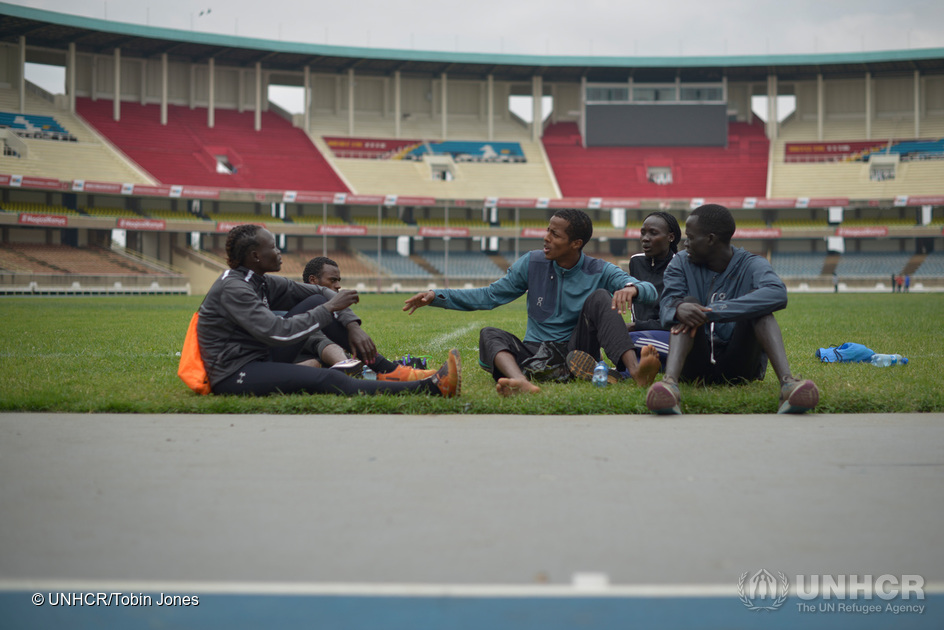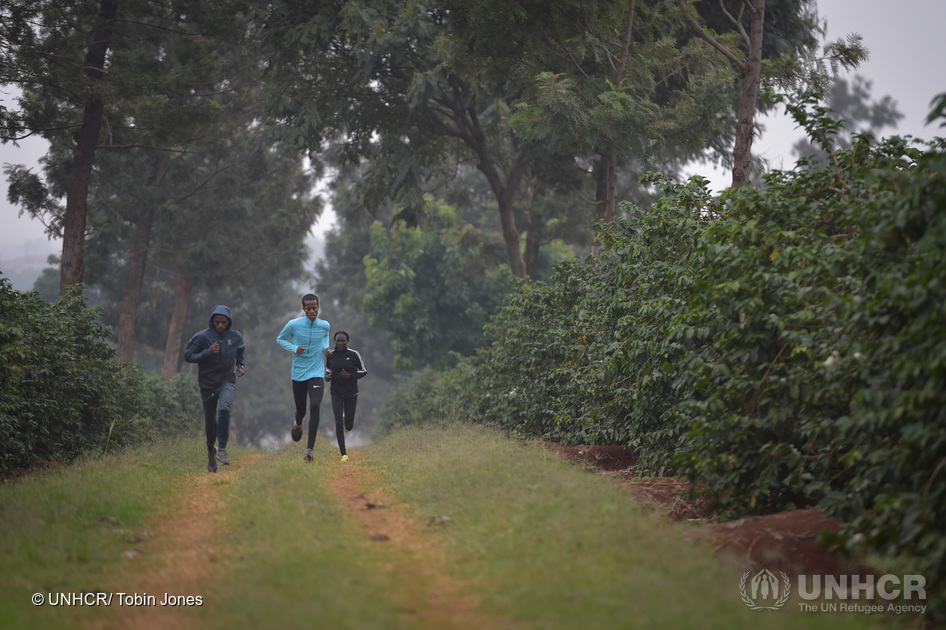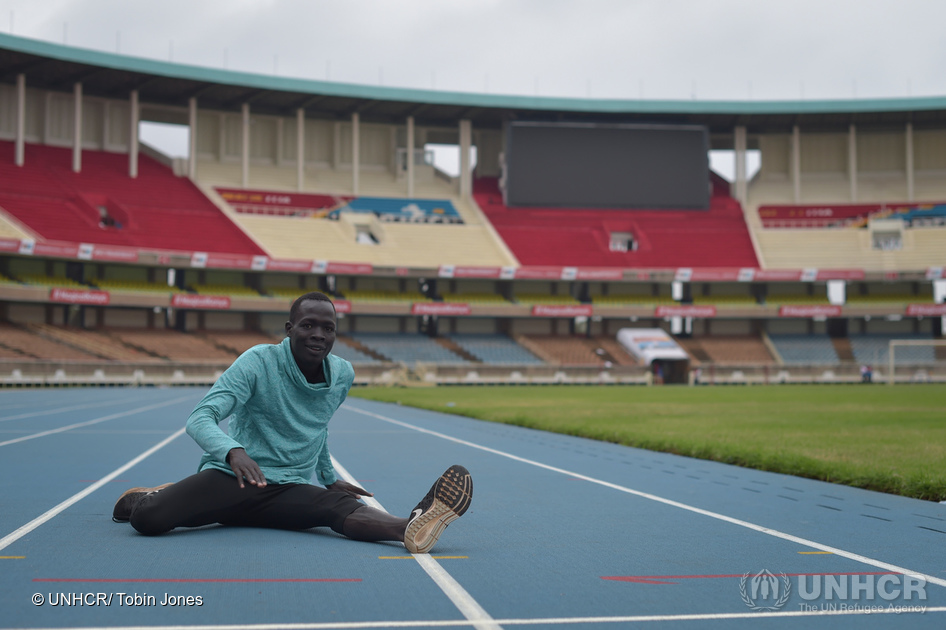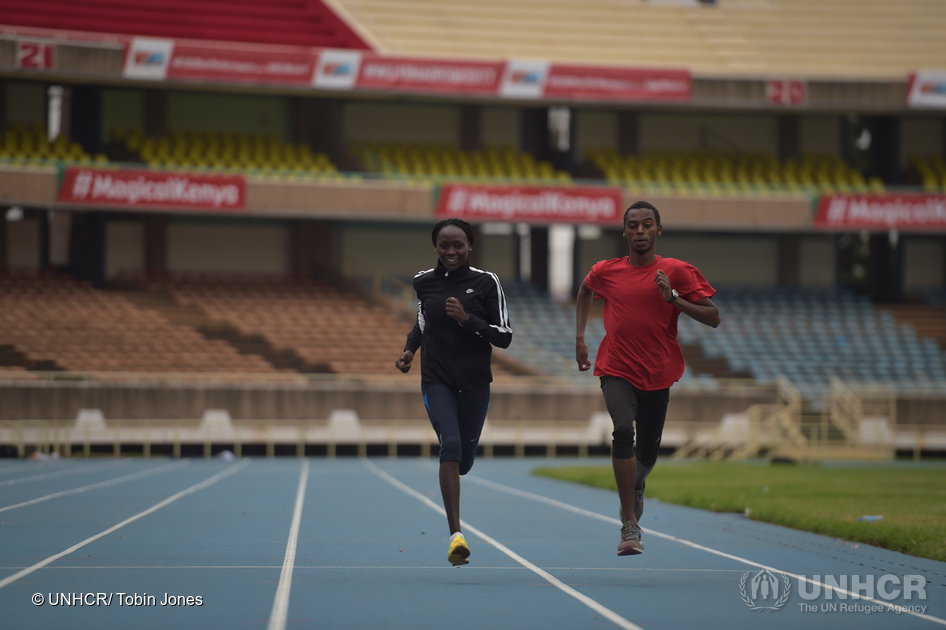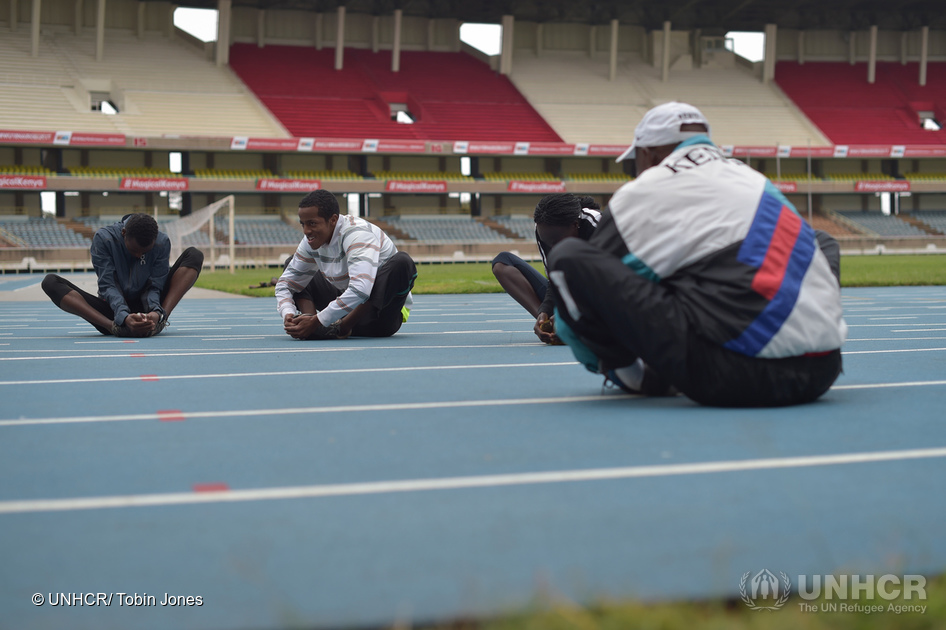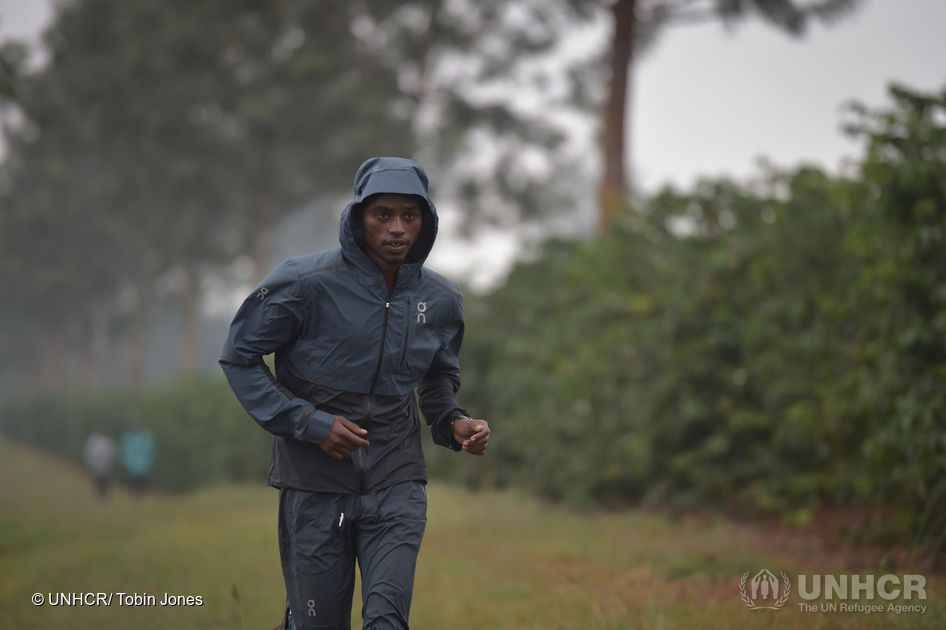Refugee athletes from Kenya to compete at World Athletics Championships in London for the first time
“I see myself competing one day one time in a higher level. Right now I am participating with the champions and now this is my time I have to polish my talent and to show people in the world that a refugee can make it.”

Anjelina Nadai (left), a member of the Refugee Olympic Team in the 1500m, and Rose Nathike, also a member of the Refugee Olympic Team in the 800m, run during a training session in which the Refugee Team joined the Kenya Athletic Team practice in Nairobi, Kenya, on July 25, 2017. ; The Rio Olympics in 2016 represented the first time in Olympic history athletes were able to compete in the games as refugees. Today UNHCR continues to work with refugee athletes across the world to ensure they have the same opportunities as those with a country to represent.
Refugee athletes from Kenya are heading to London to compete in the IAAF (International Association of Athletics Federations) World Athletics Championships on August 4th. It is the first time in the 34-year history of the competition that refugees will take part.
Ahmed Bashir Farah, Anjelina Lohalith, Dominic Lobalu, Rose Lokonyen and Kadar Omar, will be participating under the Athletes Refugee Team.
The athletes are thrilled at the opportunity to compete internationally after months of training in the Kenyan capital, Nairobi.
19 year-old Ahmed who fled violence in Somalia with his mother and two sisters when he was just 9 years old, and has been refugee in Nairobi ever since, will compete in the 800 metres.
“I feel great going to London. We only have a few days left. I want run my best time and qualify for the next stage. You know this is my first big international race so it’s normal, you have to feel a little nervous and scared but once I’m on the field, the fear will leave me.”
Training mate Anjelina from South Sudan, a refugee for 10 years, will be running in the women’s 1500 meters. She’s excited about the London competition. But it’s not the first time she’ll be running internationally.
The 23 year-old took part in the Rio Olympics in 2016, under the Refugee Olympic Team, the first time in the history of the games refugees were allowed to participate. The London Championships come almost a year to the day since the start of Rio.
“I see myself competing one day one time in a higher level. Right now I am participating with the champions and now this is my time I have to polish my talent and to show people in the world that a refugee can make it.”
Ahmed and Anjelina, with the three other refugees taking part, have had the opportunity to train with the Kenyan national team, including David Rudisha, the 800 metres world record holder and Olympic champion.
Rudisha has just announced he will not be competing in London because of a muscle strain, but Ahmed says training with Kenya’s world champions has boosted the confidence of the refugee team.
Kadar, aged 20, who originally comes from a country well known for producing athletics world champions, Ethiopia, will get the chance to run in the same competition as his icon, the British Olympian Mo Farah, who took Gold in the 5000 meters during Rio.
“This is like a dream come true because I have been working on this for almost 3 years. I did not give up. I aspire to be like Mo Farah. I am a big fan. My goal is to run with him in future. He is a good athlete, the way he runs and his style inspire me a lot.”
The Athletes Refugee Team was selected to travel to London after competitive trials held specifically for refugee athletes organised by the Tegla Loroupe Peace Foundation.
Tegla Loroupe, the World Record holder for the 20, 25 and 30 kilometres long-distance running, has been coaching the 5 athletes and other refugees.
She helped gain access for refugees to participate during the Rio Games, and is leading the way in finding opportunities for refugees to participate in international sporting events. Since Rio, Kenyan refugee athletes have competed in the Bahamas, Uganda and Rwanda.
Coach John Anzara, who works for the Foundation says he’s confident the athletes will do well in London.
“We have gone through paces. We have trained well. As far as I am concerned the team is ready and we are only waiting for the gun.”
The athletes say they are focused and ready to do well in London, and seeing how well they perform after training so hard.


